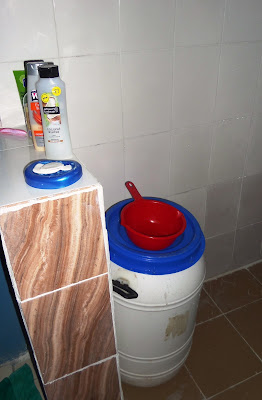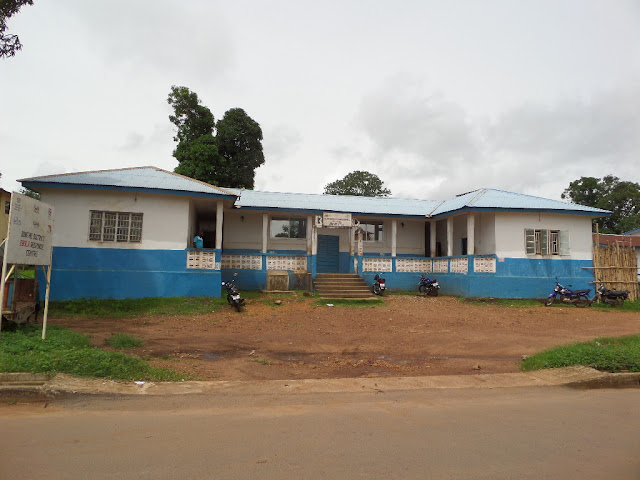Recently we
completed 7 months of service here in Sierra Leone. It was time for stepping back, for reflection
and planning. And so it was appropriate
that at the end of September we were visited by Michelle Harris, our director
for Africa from UB Global. She was here
for encouragement, and to evaluate the work here, and then she was also the
leader for a team retreat. The team
retreat was held at Cockle Point, a place on Number 2 River right on the beach
close to Freetown. Our ‘trusty’ Toyota 4
Runner provided transportation to the retreat for half of the team. We have the word in quotes, because it seems
on most trips, that it develops a problem. So far, it has never let us
set! This trip was no exception, as we
started having the problem that was fixed before we started—that of a bulky
fuel pump. Loss of power and inability
to ascend hills became more and more of a problem, so much so that close to
Freetown, we called a mechanic friend. But it took him so long to get to us,
that finally we called him back, and said that we would try to make it on to
the retreat center. The interesting
thing is that the rest we gave the engine seemed to have cured the problem, as
we never had any more trouble either going or coming back the 180 miles! The last 15 miles were over roads that were
so bad that anything worse would need prayer plus 4 wheel drive. We were driving on slick bridges without
sides over deep ravines and rivers, rocks and bumps that shook you to the core,
and ruts that have been there for time immemorial. But the beautiful setting was ideal for our
team retreat! For the majority of the time there, we were the only guests. A meeting room upstairs at the restaurant
sufficed for our team time, and we had a gorgeous view of the mountains and the
river all together. It was a great
team-building time as well as a time to bring us closer to God.
Highlights
of the Retreat included times of recreation, playing games at night, swimming
in the ocean, walks on the beach, boating, and Bible Study. It was an excellent time of recharging and
revitalizing, and showed us how it is possible to lose focus even while doing
ministry.
 |
| The food was AMAZING! Like this stir-fried chicken with cashew nuts. We needed to put on some pounds and this definitely did the trick! |
Our team
was also given a boost by the presence of Richard and Cathy Toupin for 7 weeks,
and they were also able to join us on our retreat. They are former missionaries to Sierra Leone,
and served here in the early 1990s before the war overtook the compound. He is
a medical doctor, and she is a registered nurse. They gave much needed expertise, particularly
in surgery, and in help on the nursing stations. We miss them now that they are no longer
here, as it was nice to have someone to fall back on in an emergency. Plus, because of their presence we were able
to take a couple of nice breaks to go to Freetown, and we even braved the road
to Bo again!
 |
| Richard & Cathy doing a C-section. |
 |
| Our team with Michelle Harris. |
It’s six
weeks later now, but we still feel the impact of the retreat. Although life is
often still a daily struggle, and some days we feel tempted to give up, we seek
to stand united as a team and trust that God has a plan!
Below a few
other glimpses of our lives!
 |
| Heleen keeps seeing victims of Gender Based Violence in her little office in the corner of the Pediatrics Ward. She is also working with some children with disabilities. |
 |
| And Jon keeps rounding the hospital, sometimes by himself, but often with a following. Recently he was able to help train three Community Health Officers who spent some time at our hospital. |
 |
| We have continued to go on evening walks - this is one of our favorite places to go! It is a quiet place by the river side. |













































